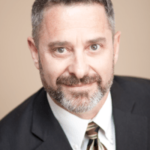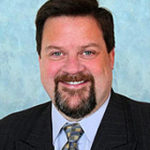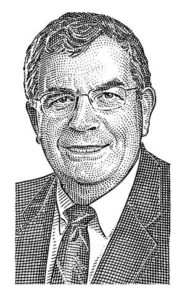 Article: Why This Reformed Christian Will Not Be Charismatic In 2018 by R. Scott Clark (original source here)
Article: Why This Reformed Christian Will Not Be Charismatic In 2018 by R. Scott Clark (original source here)
Tim Challies has published a list of predictions for the “New Calvinist Movement” for 2018. It has understandably provoked discussion. He writes,
In 2018 we will begin to see wider practice of the sign gifts among those who hold to Reformed theology and this will bring some controversy. To this point the debate surrounding cessationism and continuationism has largely been theological, but it will soon become far more practical. We will see churches that are Reformed in much of their theology also practicing prophecy, inviting tongues-speaking, and founding healing ministries.
As a matter of sociology Tim is probably correct. The attempted synthesis of some few aspects (see below) of Reformed theology with Charismatic and Pentecostal theology, piety, and practice will continue. This synthesis is part of a pattern that has roots in the 19th century. On this see the essay “Magic and Noise: On Being Reformed in Sister’s America” in Always Reformed. This is (Sister) Aimee’s world and the Reformed are just living in it. It is vital to recognize this reality, however, and respond accordingly.
The first response should be to define Calvinist or Reformed correctly. One cannot hold essentially the same view of the Word and sacraments as, e.g., Thomas Müntzer (1489–1525), who was a Charismatic/Pentecostal (Ana)baptist and call one’s self a “Calvinist” or “Reformed.” The Reformed churches confess a very different view of Scripture (they are, as Tim notes) cessationist, and sacraments (they were all, every last one of them, paedobaptist) than that confessed by most of the so-called “New Calvinists” or the Young, Restless, and Reformed.
It might be better to describe this movement as Young, Restless, and Augustinian or Young, Restless, and Predestinarian, because this is what they mean by the adjective “Calvinist.” In this context, the “New Calvinists” are not invoking much else about the “Calvinist” theology, piety, and practice. They certainly are not invoking the Calvinist doctrine of sola Scriptura or the Calvinist doctrine and practice of worship. The “New Calvinists” are not animated by Calvin’s doctrine of God, man, Christ, soteriology, nor certainly by his doctrine of the church and sacraments. One need not take my word for it. Carl, Todd, and Aimee have a good discussion today of the discontinuities between the “New Calvinists” and historic Reformed theology, piety, and practice.
So why will I not become a Charismatic in 2018? As Carl, Todd, and Aimee discuss, it is not because I doubt the power of God to do today as he did during the Apostolic era. It is because I believe that he could do right now what he did then. It is because it is my Charismatic and Pentecostal friends who have defined down the divine power. None of the old-fashioned Pentecostalists are doing what the apostolic company did. Creflo Dollar needs a Gulfstream V to get about but Philip was transported by the Holy Spirit himself. God’s Word says, “the Spirit of the Lord carried Philip away, and the eunuch saw him no more” (Acts 8:39; ESV). Where is Dollar’s faith? Why did he hector Grandmothers for their Social Security money when it was all about his lack of faith? God is utterly able to carry Creflo Dollar about without the use of a state-of-the-art Gulfstream jet. Yet, even Dollar needs a jet. Why? Because the Apostolic age is over. The Spirit is not transporting deacons and preachers any longer. As Carl & Co. note, Acts 5:12 says that the Apostles “regularly” did signs and wonders. They were so full of the Holy Spirit and so powerful that the people “even carried out the sick into the streets and laid them on cots and mats, that as Peter came by at least his shadow might fall on some of them” (Acts 5:15; ESV).
This is not true of the Pentecostals and Charismatics. They hold healing services on Wednesdays and some are alleged to have been healed and others not. When that happens it is claimed that it was because the sick did not have had enough faith. This does not agree with Luke’s record of the healing ministry exercised by the Apostles. When the Apostle Paul was bit by a viper on Malta (Acts 28:1–6) none of those around him believed that he would survive but he did because he was an Apostle. If Creflo Dollar or any of the leading charismatic “New Calvinists” were bit by a viper they would need medical treatment. The Spirit used the Apostle Peter to put to death Ananias and Sapphira (Acts 5:1–11).
We trust that our “New Calvinist” friends exercise church discipline but we have yet to read of any of them who has put anyone to death. Why? Because they are not Apostles. The age of Apostolic miracles is past.
The second reason I will not become a Charismatic in 2018 is because it does injury to the sole, ruling authority of God’s Word. Our charismatic friends think of themselves as people of God’s Word but every time they claim to have received a revelation apart from Scripture they marginalize God’s Word. Thus, against the sixteenth-century charismatic movements (they existed), the Reformed churches confessed (and confess today):
We believe that those Holy Scriptures fully contain the will of God, and whatsoever man ought to believe unto salvation is sufficiently taught therein. For since the whole manner of worship which God requires of us is written in them at large, it is unlawful for any one, though an apostle, to teach otherwise than we are now taught in the Holy Scriptures: nay, though it were an angel from heaven, as the apostle Paul says. For since it is forbidden to add unto or take away anything from the Word of God, it does thereby evidently appear that the doctrine thereof is most perfect and complete in all respects. Neither may we consider any writings of men, however holy these men may have been, of equal value with those divine Scriptures, nor ought we to consider custom, or the great multitude, or antiquity, or succession of times and persons, or councils or decrees or statutes, as of equal value with the truth of God, since the truth is above all; for all men or of themselves liars, and more van than vanity itself. Therefore we reject with all our hearts whatever does not agree with this infallible rule, as the apostles have taught us saying, Test the spirits, whether they are of God. Likewise: any one comes to you and brings not this teaching, receive him not into your house.
God’s holy, inspired, inerrant, and infallible Word is sufficient for Christian faith and Christian practice. We need no ongoing revelation alongside Scripture. We do not believe that there is any actual ongoing revelation alongside Scripture. This was a source of great disagreement between the (Ana)baptists and the confessional Protestants (i.e., the Lutheran and the Reformed) in the 16th century. The sixteenth-century charismatic movements boasted that they were not dependent upon what they called “the dead letter” because they were receiving fresh revelations from God. The Lutheran and Reformed churches rejected these groups as “sects” (see Belgic Confession art. 29) and fanatics.
One of the tests that I proposed in Recovering the Reformed Confession was a thought experiment in time travel. Imagine that our leading “New Calvinist” charismatics were to appear before Calvin to explain their view that God continues to give special revelation alongside holy Scripture. How do you think he would respond? We need not guess. He has already answered our question. Consider this passage from the original Calvinist:
Furthermore, those who, having forsaken Scripture, imagine some way or other of reaching God, ought to be thought of as not so much gripped by error as carried away with frenzy. For of late, certain giddy men have arisen who, with great haughtiness exalting the teaching office of the Spirit, despise all reading and laugh at the simplicity of those who, as they express it, still follow the dead and killing letter.1 But I should like to know from them what this spirit is by whose inspiration they are borne up so high that they dare despise the Scriptural doctrine as childish and mean. For if they answer that it is the Spirit of Christ, such assurance is utterly ridiculous. Indeed, they will, I think, agree that the apostles of Christ and other believers of the primitive church were illumined by no other Spirit. Yet no one of them thence learned contempt for God’s Word; rather, each was imbued with greater reverence as their writings most splendidly attest. And indeed it had thus been foretold through the mouth of Isaiah. For where he says, “My Spirit which is in you, and the words that I have put in your mouth, will not depart from your mouth, nor from the mouth of your seed … forever” [Isa. 59:21 p., cf. Vg.], he does not bind the ancient folk to outward doctrine as if they were learning their ABC’s; rather, he teaches that under the reign of Christ the new church will have this true and complete happiness: to be ruled no less by the voice of God than by the Spirit. Hence we conclude that by a heinous sacrilege these rascals tear apart those things which the prophet joined together with an inviolable bond. Besides this, Paul, “caught up even to the third heaven” [2 Cor. 12:2], yet did not fail to become proficient in the doctrine of the Law and the Prophets, just as also he urges Timothy, a teacher of singular excellence, to give heed to reading [1 Tim. 4:13]. And worth remembering is that praise with which he adorns Scripture, that it “is useful for teaching, admonishing, and reproving in order that the servants of God may be made perfect” [2 Tim. 3:16–17]. What devilish madness is it to pretend that the use of Scripture, which leads the children of God even to the final goal, is fleeting or temporal?
Then, too, I should like them to answer me whether they have drunk of another spirit than that which the Lord promised his disciples. Even if they are completely demented, yet I do not think that they have been seized with such great dizziness as to make this boast. But in promising it, of what sort did he declare his Spirit would be? One that would speak not from himself but would suggest to and instill into their minds what he had handed on through the Word [John 16:13]. Therefore the Spirit, promised to us, has not the task of inventing new and unheard-of revelations, or of forging a new kind of doctrine, to lead us away from the received doctrine of the gospel, but of sealing our minds with that very doctrine which is commended by the gospel (Institutes 1.9.1).
The charismatic movement is not new. The Reformed churches rejected it in the 16th century and, as much as we may appreciate the (non-charismatic) gifts of some of those proponents of the synthesis, we continue to reject it because it necessarily compromises God’s Word. Either God’s Word is the sole, final, ruling authority for the Christian faith and life or the “still, small voice” is. Both cannot be the final authority and if Scripture is the final authority, then we need no ongoing, special revelation alongside Scripture.
In the spirit of the Synod of Dort I will combine my third and fourth points. The last reason I will not become a charismatic in 2018 is because I have been there and tried that and found it wanting biblically and practically. Long ago, when I was pastoring a small church in Kansas City, Missouri the so-called “Kansas City Prophets” movement was in full swing. In that same period I was meeting with charismatic and Pentecostal Christians for prayer. As they “spoke in tongues” (more on this below) I prayed in English. What I discovered is that these fellows were good guys who re-described everything that happened to them in Apostolic, supernatural terms. In truth they had no more Apostolic power than I did. They simply used biblical language to describe whatever happened to them.
In the same period I worked through the question biblically and theologically. I very much wanted the charismatics to be right but I did not find the Scriptures to teach what they claimed. There is no ground for distinguishing the phenomena of Acts 2 from the phenomena that Paul describes in 1 Corinthians. “Tongues of men and angels” (1 Cor 13:1) has utterly nothing to do with the practice of glossolalia. Indeed, the practice of glossolalia has nothing to do with the apostolic phenomenon of “tongues,” which was nothing more or less than the Spirit-given ability to speak in natural foreign languages. Upon close inspection, the case for ongoing charismatic non-canonical revelation alongside Scripture collapsed. B. B. Warfield was fundamentally correct. It is all special pleading. It does not stand up to close, exegetical scrutiny. It is not biblical. Glossolalia is a universal human religious phenomenon that has been re-described in biblical, apostolic terms. The revelations claimed by our friends are not any such thing. It is all just an illusion.
Brothers and sisters, Scripture is enough. The Spirit is working marvelously through it to bring dead sinners to new life. Through it he is granting them true faith and through it union with Christ. Through baptism he is marking out his visible church and putting his seal on his elect, which he will sovereignly bring to fruition in his good time. Through the Lord’s Supper he is mysteriously feeding believers on the true body and blood of Christ. He is operating secretly and powerfully in ways that you and I may never know. It is not that he is not operating. It is that we are looking for him in all the wrong places.
 Articles by Bob Gonzales who has served as pastor of four Baptist congregations and the Academic Dean and a professor of Reformed Baptist Seminary.
Articles by Bob Gonzales who has served as pastor of four Baptist congregations and the Academic Dean and a professor of Reformed Baptist Seminary.






